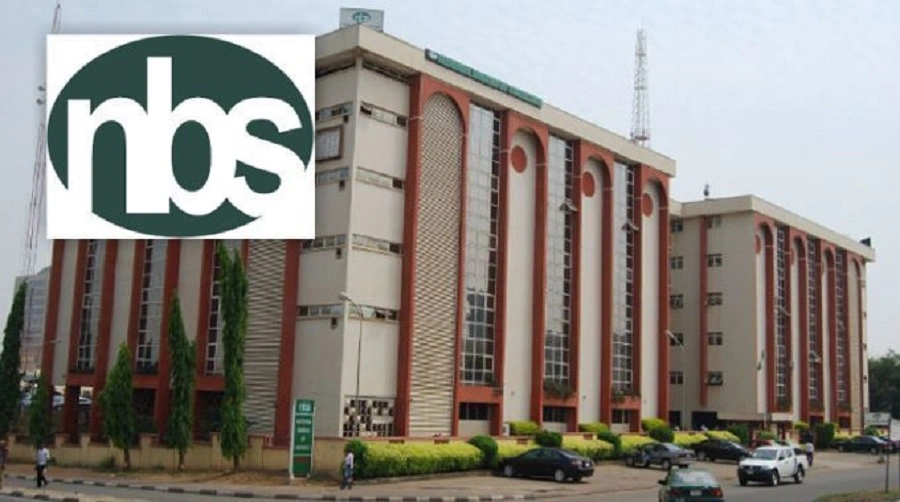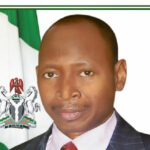Two seemingly independent events at two very different points on the planet over the past few weeks illustrate just how deeply interconnected but still fiercely competitive the nature of global economic policy. On Thursday, November 17, the National Bureau of Statistics, the NBS, declared that 133 million Nigerians, or 63 per cent of the total population, are “multi-dimensionally” poor. Three weeks later, the United Kingdom government opened applications for primary and secondary school teachers from Nigeria and eight other countries. Now, what do these two otherwise disparate events in the real world have in common?
Well, they both illustrate the consequences of slave salaries and wages that Nigeria pays its workers across almost all levels and sectors. Let’s distill the NBS multidimensional poverty figure first. Frankly, stripped of all academic jargon, multidimensional poverty is not too much different from a measure of poverty based on more well-known monetary value, such as the NBS’s own local measure of Nigerians living on less than N376.50 per day or about N137,422 per year. On the basis of this monetary value, some 40.1 per cent or 82.9 million Nigerians were categorised as poor by the NBS in 2018/2019. However, if we use the new Multidimensional Poverty Index (MPI) by the same NBS, then we have 133 million Nigerians in poverty.
In effect, then, the MPI measure is only saying that 50 million more Nigerians are poor than the previous monetary measure would allow. Still, the time lag between 2019 and 2022, and the worsening economic situation in the country caused by the pandemic and Russia-Ukraine war in between the two years could explain a lot of the difference between the two poverty figures, indicating that the two figures may not be much too different after all. But most significantly, the single most important indicator of poverty is income, regardless what measure is used to measure it.
If you live on less than a dollar per day, it is because you have less income to live on. If you lack adequate nutrition and housing and have limited access to quality education and health, the things measured by the multidimensional poverty index, it is also mostly because you have less income to afford better living standards. So either way, a lack of income or low income is the surest route to poverty, and what keeps the poor where they are. Better incomes, therefore, are also among the most effective policy measures for getting people out of poverty, for example, through conditional or unconditional cash transfers that many countries have tried with success.
- Pele’s family gather at his hospital bedside on Christmas Eve
- Coach Ugoaja calls for removal of Rovers FC Chairman
This is where Nigeria’s pitiable salaries paid to nearly all categories of workers in Nigeria come into the discussion. No doubt, Nigeria has some of the lowest salaries and wages in the world, which explains why we are also among the top three countries with the highest proportion of the poor, regardless of whether you use the new MPI figure of 133 million in 2022 or the previous figure of 82.9 million in 2019. But how is the low salaries in Nigeria connected to a new government policy in far away Britain?
It should seem quite obvious enough. When the UK Department for Education (DfE) announced a few weeks ago that teachers in Nigeria and eight other countries are now eligible to teach in the UK for up to four years without having the Qualified Teacher Status (QTS), a legal requirement that all teachers need to work in that country, it was making a strategic policy choice. And the reasons are again not different from those they use to attract doctors and other categories of professionals from countries like Nigeria.
According to the DfE, Britain has been facing an acute shortage of primary and secondary teachers over the past decade and a half. First, there are just not enough people going into teaching any longer in Britain. Over the past few years, the UK government has regularly missed recruitment targets for qualified teachers, particularly in the science subjects and languages. For example, only 45 per cent of the recruitment target for Physics teachers was met in 2020/2021. The targets for other science subjects like chemistry and maths were better—80 per cent and 84 per cent respectively—but the shortfalls are still significant for a developed country like Britain. Moreover, about 40 per cent of newly trained teachers in the UK leave the profession within five years of starting work. That figure is higher in London and other disadvantaged or less affluent parts of the country.
The main reasons for low recruitment and retention rates for teachers in Britain are nearly the same as everywhere: low pay and challenging working conditions. Thus, you would expect the British government to incentivise teaching by increasing teachers’ pay and making the working conditions less challenging or at least more bearable in order to attract and retain more people into teaching. But that’s not how capitalist economies work because it costs up to £22,000 (about N12m) to train a single teacher in Britain. For the UK government, that means £220 million or approximately N120 billion in official rates to train 10,000 new teachers in-house.
Thus, the UK’s new policy for attracting more teachers boils down to this: why not simply import them from overseas rather than spend all that money at home to train more teachers who would move to other jobs anyway? The nine countries listed in this new policy are Nigeria, Ghana, South Africa, Zimbabwe, Jamaica, India, Hong Kong, Singapore, and Ukraine. Other than Ukraine, all the countries are former colonies of Britain where English is the official if not the dominant language. The strategic thinking behind such a list is, therefore clear, and in the light of current political events there today, we all can guess why Ukraine is the only outlier on the list.
Otherwise, the primary targets are countries with a legacy of British education in the English language and you can expect more of such countries to be included in the near future if the new policy works to expectations. Indeed, it is this same strategic thinking that enabled Britain to skim off nurses from Zimbabwe and the whole of southern Africa over the past two decades, not to mention countries like Nigeria and Ghana. It is also the same strategic thinking behind most of the new work visa systems the British government has put in place in the past few years.
For example, Nigerian banks are now facing shortages of professional talent in their IT departments and units because thousands of them have moved to Britain to take advantage of new visa systems that were deliberately designed to attract them. Now, our teachers will follow them. Teachers in Britain earn between £28,000 and £38,810 on average, which frankly is not much in the specific contexts of that country. But that is like, between N15 million to N21 million in Nigerian currency, so that when you take add-ons like free education and health for your children into consideration, it makes sense for many Nigerian teachers to want to leave. And leave, they will as long as they can’t find work or reasonable pay here at home, and even if the Nigeria Union of Teachers (NUT) has tried to discourage just that.
So, for the umpteenth time, if Nigeria pays professionals poorly, it is merely making them attractive for other countries to recruit on the cheap to solve their own problems. But the important question now is, how can the Nigerian government address a complicated matter such as this?




